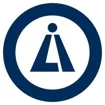Healthier Generation works nationally and locally with schools and school districts, youth-serving organizations, businesses, and communities – building their capacity to create healthier environments where young people can thrive. Our work, in total, has reached more than 31 million children and meaningfully improved environments to support the physical, social, and emotional health of the next generation—especially those from underserved communities. Our programs are evidenced-based and evidence-informed, supported by a robust digital/virtual/live training platform and action center, as well as direct-to-community services. Through Healthier Generation programs, products and services, more children nationwide are gaining the opportunity to build a healthy future.
Job Purpose – What You Will Do
The Evaluation Manager is responsible for managing the design and implementation of effective evaluation and needs assessment activities across the organization. The position will directly engage with various internal and external program interest holders to develop logic models and serve as the evaluation expert for their assigned programs. The successful candidate will be a motivated self-starter with a strong public health background who is interested in program evaluation, analysis, and data systems in a mission-driven organization. They will have experience working with community leaders and understand the intersectional challenges that BIPOC and rural communities face.
They will be a systems-level thinker with the ability to initiate program evaluation inquiries, critically analyze data, assess outcomes, and provide recommendations to management to improve programmatic delivery and effectiveness. The position also requires exceptional interpersonal skills to work with, train, and support staff in data collection and entry. They will have strong analytical, project management, reporting, and communications skills.
Core Responsibilities
Evaluation planning
Plan, coordinate, and oversee multiple evaluation projects, including the design of evaluation frameworks, methodologies, and data collection instruments, including development of:
Theories of change and logic models
Monitoring and evaluation plans, inclusive of engaging stakeholders in the evaluation planning.
Performance measures for individual and portfolios of projects
Data collection tools, such as surveys and interview guides
Data collection plans
Interest holder engagement:
Facilitate communication and collaboration with interest holders throughout the evaluation lifecycle.
Engage with program managers, funders and other key interest holders to gather input, address concerns, and disseminate evaluation findings.
Conduct or contribute to literature reviews.
Provide support to fundraising and program staff for proposal development.
Monitoring & Evaluation
Implement monitoring and evaluation plans:
Collect data using various methods (e.g., surveys, interviews, observations)
Ensure data quality and integrity
Manage data effectively to facility analysis
Monitor project activities, outputs, and progress towards anticipated goals.
Train Healthier Generation staff in data collection, input, monitoring, and evaluation processes and provide ongoing support and assistance.
Conduct or provide support to data quality audits.
Manage third party evaluators and contracts that support the evaluation of Healthier Generation initiatives.
Analysis and Reporting
Clean, sort, categorize, organize, and manage data.
Conduct quantitative and qualitative analyses to interpret findings.
Develop monthly, quarterly and annual reports for internal and external interest holders:
Create custom reports and presentations accompanied by strong data visualization and storytelling.
In collaboration with project interest holders:
Interpret findings to draw conclusions about program effectiveness and impact.
Synthesize results into actionable insights and recommendations.
Develop reports for internal and external stakeholders. Disseminate evaluation finding and project results to funders, internal staff, and other stakeholders.
Facilitate discussions and feedback sessions to ensure understanding and utilization of evaluation results.
Required Competencies – Who You Are
You should have a genuine interest in and commitment to making kids’ lives healthier. You are a dedicated equity driven, solution-oriented professional who values community centered approach and systems-level change. Your ability to prioritize tasks, build internal and external relationships and be self-driven prepares you for this position.
Your professional experience will show that you practice many of the following Healthier Generation core values:
- Mission driven: You are passionate about creating equitable environments for young people and believe every mind, every body, and every young person should be healthy and ready to succeed. You demonstrate passion for school and youth-serving organizations, health and wellness, quality standards and processes.
- Crave Solutions: You strategize to transform systems and drive sustainability through evidence-based, data-driven approaches. You have an ability to assess and identify significant opportunities and potential problems and develop feasible solutions to address the problem.
- Bridge Builders: Making intentional and effective connections externally and internally to fulfill our purpose. You can build and maintain relationships with a variety of diverse stakeholders and have an understanding of the challenges facing communities that serve Black, Indigenous, and People of Color populations.
- Engage and connect: You demonstrate professionalism and courtesy with open and proactive communication to increase synergy. You assume best intentions and practice self-management and empathy to acknowledge our own and each other’s perspective. You can effectively provide and receive feedback that is constructive, timely, as appropriate.
- Never settle: You strive constantly for excellence and equity with an eagerness to improve and a zeal to stand up for generations of healthy, thriving kids. You have demonstrated knowledge and experience in cultural competency and applying an equity mindset with colleagues, leaders, stakeholders, and communities.
- Virtually here: You respect the time and contributions of colleagues by being punctual, attentive, and responsive in all virtual settings. You use available technology to create an environment that facilitates person-to-person connectivity and workflow. You also have effective presentation skills (internal, external, small, large, conference calls, in-person).
Education & Experience Requirements




